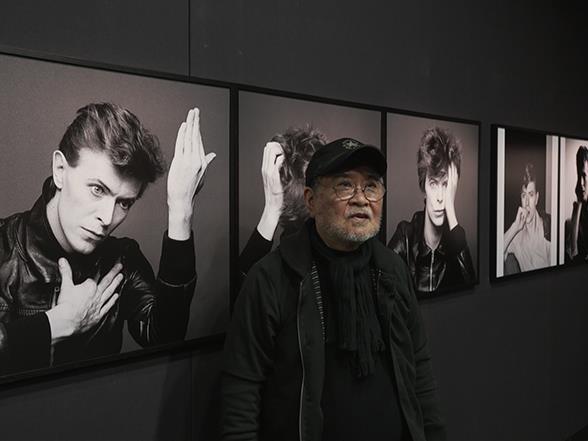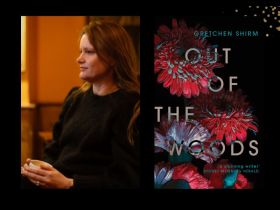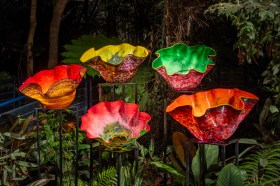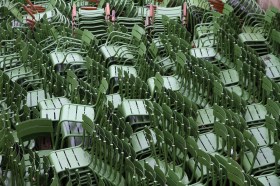Photographer Masayoshi Sukita is the subject of the documentary SUKITA/The Shoot Must Go On. Image: © 2018 SUKITA Partners
Since its inaugural event in Sydney, the Japanese Film Festival has expanded to tour 14 cities in Australia, with over 40 titles alone screening this year. An integral part of its programming is to include stories that wouldn’t necessarily make it onto the mainstream festival circuit, alongside hits from international festivals including: River’s Edge, Love at Least, Killing and Kore-eda’s The Third Murder.
‘We’re trying to cater to a general film-interested audience as well as to Japanese people living in Australia and people interested in Japanese culture generally,’ said Japanese Film Festival programmer Alison Groves.
‘So we’re looking at stories that present Japan in a new way and also opportunities to highlight the emerging directors who don’t have the Kore-eda [director Hirokazu Kore-eda, 2018 Palme d’Or winner] profile to get into other Australian film festivals.
‘We have this beautiful opportunity to do something a little more niche by bringing out titles that would not otherwise make it to Australian audiences – on the big screen in particular,’ Groves added.
Diversity, cult cinema and idol culture
This year’s festival showcases a diverse range of cinema from the classic ramen-western comedy Tampopo, to a documentary on iconic portraiture photographer Masayoshi Sukita, in addition to cutting-edge drama that shows a side of Japan not often documented.
‘We’re seeing powerful films that take the experiences of Korean-Japanese characters to the centre,’ Groves told ArtsHub.
‘This is a group of people who have experienced hardship and challenges in Japanese society, and whose voices are being highlighted in films like Yakiniku Dragon. Another title Ramen Shop shares the experience of a Japanese-Singaporean chef piecing together his family history and cultural identity.
‘The identity of half-Japanese people and those with mixed backgrounds in Japan is more complex than perhaps Australian people realise.
‘The issues around identity and representation in film are complex and historical and we’re seeing the beautiful impact and ripples of changes that are happening over in Hollywood in the discussions around diversity and representation in Japanese filmmaking,’ she added.
‘Another strength in this year’s program is the abundance of talented young and emerging directors. Ryutaro Nakagawa’s (b. 1990) slice-of-life film Summer Blooms, Yukihiro Morigaki’s (b. 1983) family drama Goodbye Grandpa, and Shinichiro Ueda’s (b. 1984) One Cut of the Dead offer refreshing approaches to story-telling – we’re excited to see what these directors do next!’
There are three parts to JFF including the main festival program which tours the major cities, a free classics program that screens 35 and 16mm prints, and a free regional program which tours 10 cities, including Alice Springs, Bunbury and Darwin.
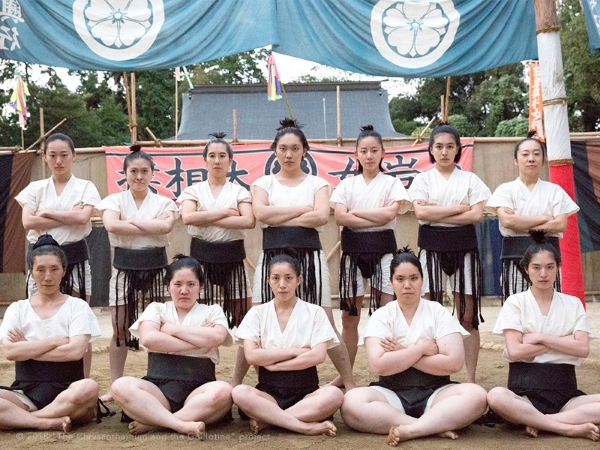
Image: © 2018 “The Chrysanthemum and the Guillotine” project
‘One of the main reasons we’ve programmed One Cut of the Dead for our opening film (for Sydney and Melbourne) is that it shatters the preconception of the production agencies and major studios having complete monopoly over screen content,’ Groves said.
The film was made for a mere US$27,000 and has surpassed 400 times its budget, a feat virtually unheard of for a Japanese film, which isn’t led by one of the hugely successful production agencies that promote idol culture, a term used to describe young stars whose lives and career trajectories production houses have manufactured, similar to the Disney stars in the U.S.
‘Here comes a seminar film made on virtually no budget, with actors who actually paid to participate in the film , and a 34-year-old director who’s never made a feature before, which destroys the Japanese box office, toppling off the major studios’ hits,’ Groves said.
‘It really proves when you’ve got a team that are creative and talented there is a chance that new original content can screen with success. It’s coming from outside of the machine.’
The Japanese Film Festival runs across Australia from 17 October to 2 December. Visit: japanesefilmfestival.net
